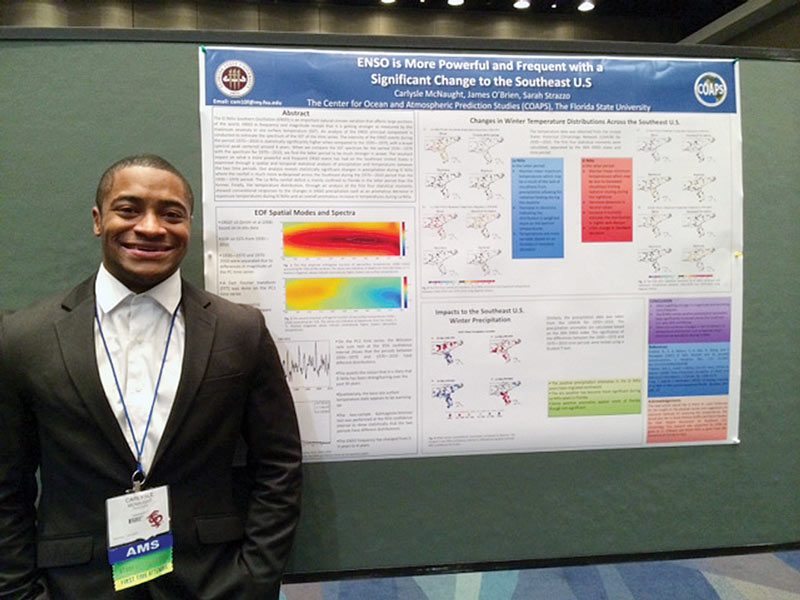
The pinnacle of undergraduate research can be presenting the work on which so many hours have been spent. One of the best ways to start off presenting your research is by attending your regional SPS Zone Meeting and giving a poster presentation or an oral presentation. More and more undergraduates are also attending national meetings and presenting their papers and research there.
Below, we've compiled some tips and resources to help students that may have never given a presentation before.
Poster Presentations
What a poster presentation entails looks slightly different for every conference. Generally there are a few tips that stand for all poster presentations:
- Try to keep your poster under 800 words.
- Check the poster size specifications for the conference you're attending. It's bad news to have the wrong size poster.
- Do a draft first. Have many different people (especially professors) look through your poster for typos and to make sure everything makes sense.
- Make sure your sections have a logical flow: introduction, methods, data, conclusions, etc.
- Make sure all your axes have labels and all your equations are correct.
- Dress professionally - you're proud of your research, so invest in some nicer clothes than jeans and an SPS t-shirt.
- Be prepared to answer questions - get some friends together and practice a brief summary of your poster. Have them ask questions, and practice answering them.
It's important to remember that you can also ask people in your department about their experiences giving poster presentations; everyone's full of advice. Upperclass men and women have also been in the same position as you - ask them about their experience and any advice they have.
Oral Presentations
For some people, there's nothing quite as intimidating as standing in front of a room full of people and giving a talk on anything, nonetheless physics. The American Physical Society (APS) hosted a SPS webinar in the Summer of 2011 on giving a talk, and can be found here: Improving your Undergraduate Research Presentations.
-
Know how much time you have. This is helpful for many reasons, but it allows you to scale your talk appropriately.
-
Know your audience. You need to give a different talk to high schoolers than you would to experienced physicists in your field.
-
Know your material. If you can become so comfortable with your talk that you only need notecards as backup, that's ideal. This includes not reading directly from your slides.
-
Part of knowing your material is not reading directly from your powerpoint slides. Do not put long blocks of text on your slides. Put simple points and ideas on the slides; explain the rest verbally, while looking at the audience. The audience shouldn't spend the entire time reading your slides, nor should they look at the back of your head while you read your slide to them.
-
Don't be afraid of your audience. It is very unappealing to attend a talk when the speaker only looks at notes or reads directly from a paper. Either look around the room at various people, find a friend in the audience and look at them, or (marginally better than looking straight down) find a nice piece of wall in the back.
-
Practice, practice, practice, practice. Practice to an empty room. Practice in front of your mirror. Practice in front of friends. Practice in front of faculty. Don't assume you don't need to practice - because you do! And there's merit in practicing in front of friends when things go wrong: let them giggle, let their cell phones go off, let one of them be late and burst into your presentation. These things may happen when you give your actual presentation.
-
Know your time limit. Time yourself giving the presentation, and assume you're going to talk faster in the actual presentation. Adjust accordingly.
-
Dress appropriately. When you're giving an oral presentation, it is rarely appropriate to wear jeans and a t-shirt.
-
Make sure all your axes have labels and all your equations are correct.
-
Cite your sources and thank the appropriate people.
-
When you are finished giving your presentation say, "Thank you. Are there any questions?" Do not say, "I'm done" "That's everything" "That's all" or "Uh...yeah...I'm finished."
Again, ask people in your department! These are the people that know you the best and are most likely to know the types of things you need to work on the most.
